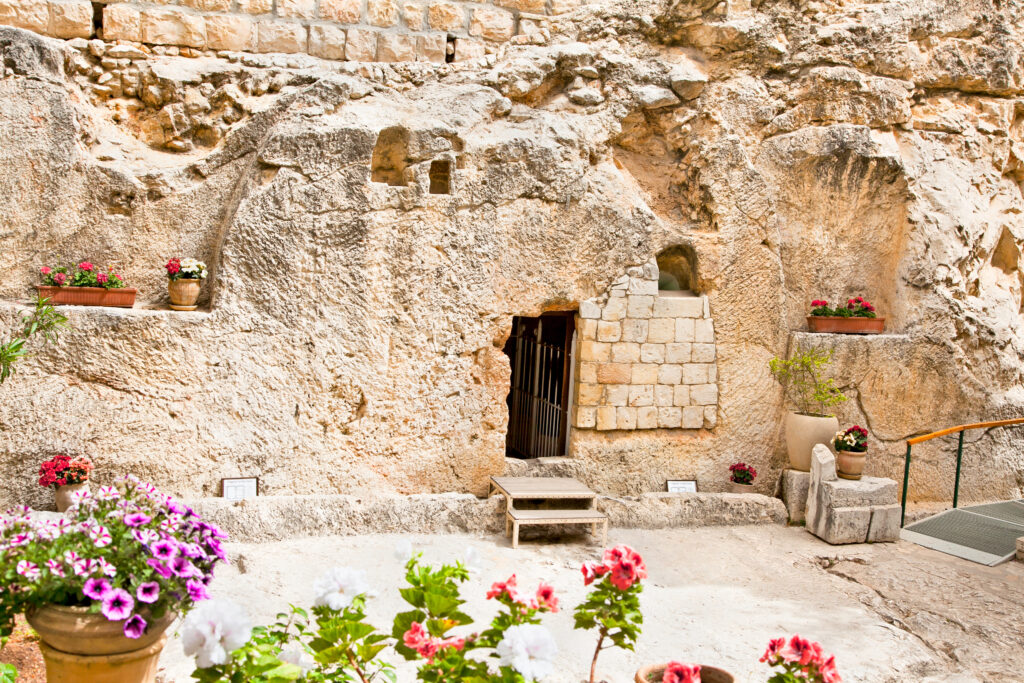The event is mentioned in all four Gospels. When the church begins, the criteria for being an apostle included being a witness of the incident. The happening was so important the subject is included in the first sermon a disciple had the opportunity to preach. As more occasions occur to preach the Gospel, the fact is frequently referenced. The feat is referred to directly or indirectly in most of the 27 books in the New Testament.
The Core of Christianity
What is this most spectacular occurrence that is specified repeatedly? It is the resurrection of Jesus Christ. On this miraculous occurrence hangs the crux of Christianity.
Matthew, Mark, Luke, and John, all record the revelation of Jesus being resurrected and narrate what happened from witnesses to that amazing phenomenon.
Peter’s Amazing Sermon
Peter shows a stunning transformation following the resurrection and delivers an amazing sermon, considering he was a fisherman and lacked homiletic training. He uses the Old Testament to illustrate how the Lord had predicted this miracle and fulfills the prophecy in Jesus’ resurrection. (Acts 2:29-36).
In the next chapter, Peter rehearses the events that lead to Jesus’ crucifixion but links the culmination of God’s plan with Jesus’ resurrection. You “killed the Prince of Life, whom God has raised from the dead; to which we are witnesses” (Acts 3:15).
In chapter 4, Peter again, defending the restoring of the lame man (from chapter 3) says, “by the name of Jesus Christ of Nazareth, whom you crucified, whom God raised from the dead, even by Him does this man stand here before you whole” (Acts 4:10). Several chapters later, in meeting with a Roman commander named Cornelius, Peter weaves in his own testimony of seeing the risen Jesus (Acts 10:38-43).
Paul’s Defense of the Gospel
The Apostle Paul had more religious training than Peter, and he also emphasized the resurrection of Jesus following his life changing conversion. In Acts 13, Paul is invited to speak in Antioch and there he declares four times that God has raised Jesus from the dead (Acts 13:30,33,34,37).
He links Jesus rising from the dead with salvation.
“Through this man is preached unto you the forgiveness of sins: and by Him all that believe are justified from all things, from which you could not be justified by the law of Moses”
(Acts 13:38-39)
Later in Athens, Paul is given a forum where he preaches the Gospel again highlighting that God “has raised Him from the dead” (Acts 17:31). In this place the reaction to the idea of Christ rising from the dead was of mockery and procrastination (Acts 17:32).
Later in Acts, Paul is granted an audience with King Agrippa and the Roman magistrate Festus. Paul explains his case and when he gets to the statement “I continue to this day, witnessing both to small and great saying no other things than those which the prophets and Moses did say should come: That Christ should suffer, and that he should be the first that should rise from the dead and should show light to the people and to the Gentiles.” Festus bursts out, “Paul you are beside yourself, much learning makes you mad (crazy)” (Acts 26:22b-24). Of course, Paul defends his sanity but by then Agrippa and Bernice have had enough and the session ends.
Essential to the Church
The fact of the resurrection is central in both Peter’s and Paul’s messages no matter what the reaction. In Paul’s letter to the Romans the idea of resurrection is mentioned at least 6 times beginning with Romans 1:4. Jesus was declared God’s Son with power “by the resurrection from the dead.” Romans 4:25 proclaims that Jesus was raised up for our justification. We are “saved by His life” (Romans 5:10),
“knowing that Christ being raised from the dead dies no more; death has no dominion over Him”.
(Romans 6:9 NASB)
Belief in the resurrected Christ is mentioned in Romans 10:9 and Romans 14:9 validates that for the believer in Jesus “we are the Lord’s, for to this end Christ died and lived again, that He might be Lord both of the dead and of the living” (Romans 14:8c-9).
More Validation
Paul devotes 1 Corinthians 15 on the resurrection of Christ. Included is the validation of the occurrence and how essential this fact is to the message of Christianity. If Christ is not alive, we are still dead in our sins which would mean we would spend eternity in hell and torment. “But now Christ is risen” (1 Corinthians 15:20). The hope we have is: if God raised up Jesus, then we who are believers in Christ will also be raised up by Jesus (2 Corinthians 4:14). We are to live for the One who “died for them and rose again” (2 Cor. 5:15)!
To the church of Galatia, Paul says his apostleship is by Jesus Christ and God the Father who raised up Jesus from the dead (Galatians 1:1). To the Ephesians he reminds them of God’s power “which He brought in Christ, when He raised Him from the dead, and set Him at His own right hand in the heavenly places…” (Ephesians 1:20). Paul’s goal in Philippians 3 is that “I may know Him, and the power of His resurrection” (Phil 3:10). The hope is mentioned in Colossians 2:12, 1 Thessalonians 1:10 and 4:14. Paul reminds Timothy that He is “risen from the dead” (2 Timothy 2:8).
The Capstone for Salvation
There are more mentions in Peters letters and Revelation. When you read the New Testament notice the references to Jesus being alive, the risen Savior. The message is the same: Believe in the Lord Jesus Christ and you will be saved! (Acts 16:31) That’s why the Resurrection is important! It is the capstone for salvation. Trust in Him today. Happy Resurrection!
